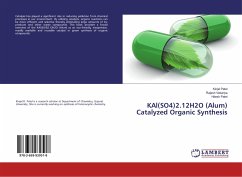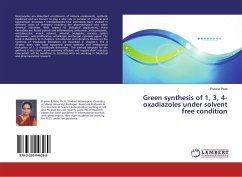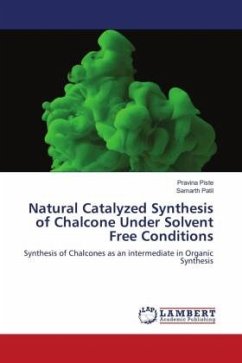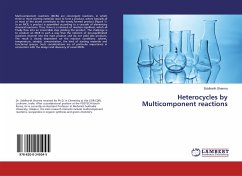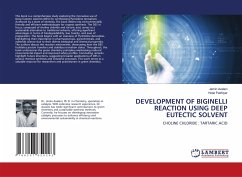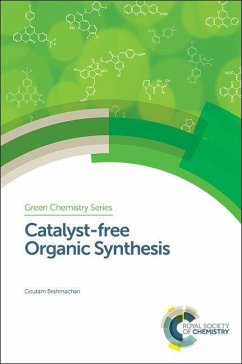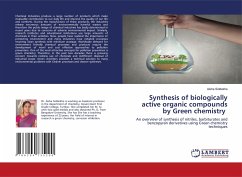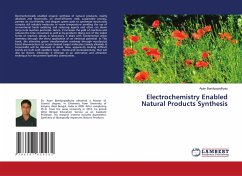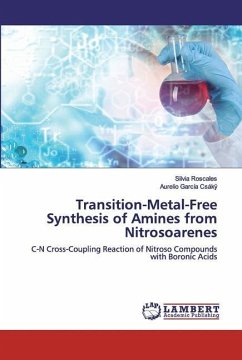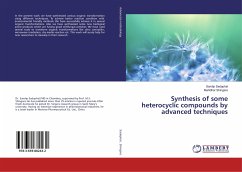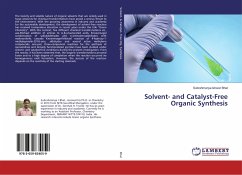
Solvent- and Catalyst-Free Organic Synthesis
Versandkostenfrei!
Versandfertig in 6-10 Tagen
33,99 €
inkl. MwSt.

PAYBACK Punkte
17 °P sammeln!
The toxicity and volatile nature of organic solvents that are widely used in huge amounts for chemical transformations have posed a serious threat to the environment. With the growing awareness in industry and academia for the sustainable development, the development of solvent-free reaction has received tremendous attention in recent years under the title "Green Chemistry". With this context, five different chemical transformations viz., aza-Michael addition of amines to ,beta-unsaturated acids, Knoevenagel condensation of salicylaldehydes and o-aminobenzaldehydes with malononitrile, cascade ...
The toxicity and volatile nature of organic solvents that are widely used in huge amounts for chemical transformations have posed a serious threat to the environment. With the growing awareness in industry and academia for the sustainable development, the development of solvent-free reaction has received tremendous attention in recent years under the title "Green Chemistry". With this context, five different chemical transformations viz., aza-Michael addition of amines to ,beta-unsaturated acids, Knoevenagel condensation of salicylaldehydes and o-aminobenzaldehydes with malononitrile, cascade Knoevenagel-Michael reaction of 4-hydroxy-1-methylquinolin-2(1H)-one, aldehydes and several active methylene compounds, one-pot, three-component reactions for the synthesis of quinazolines and densely functionalized pyrroles have been studied under solvent- and catalyst-free conditions during the present investigation. From the results, it has been observed that, the organic transformations proceed faster and to a high degree of completion when the reaction occurred via homogeneous melt formation. However, the success of the reaction depends on the reactivity of the starting materials.



